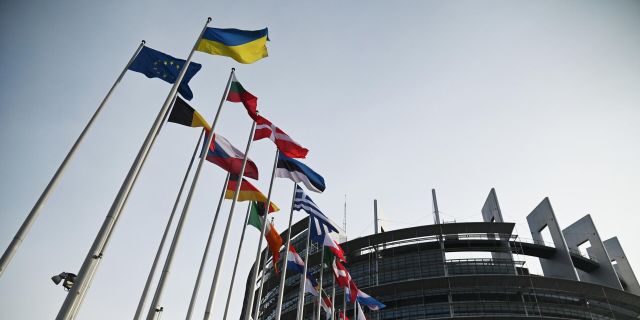Politics: Europe has split into two parts, and this entails a lot of troubleEurope is actually divided into two parts from north to south, writes Politika.
On the one hand — Russia and Belarus, on the other — all the others. Europeans are betting on what the United States offers them, and they can't find their own idea for the future. But they will have to do it.
Slobodan SamardzhiyaFinland's official entry into the community of North Atlantic Alliance States marks the actual division of Europe into two parts — from the north to the south of the continent.
Belarus and Russia with several other post-Soviet republics belong to one part, and all other states belong to the second. There are also those who, at least officially, do not belong either there or here. These are Serbia, Bosnia and Herzegovina, Ukraine, Sweden (unwittingly), Austria, Switzerland, Armenia, Azerbaijan, Georgia, Ireland and several other small states. However, it can be said that their final choice is a matter of time and personal stubbornness.
The fact remains unchanged that wars will continue to rage on the Old Continent in the future, perhaps even between the mentioned camps. Of course, these armed conflicts will be more sophisticated, with fewer dead civilians, but it will not do without the previous brutality. After all, let me remind you, NATO is a military alliance that, first of all, promotes the interests of one non—European state, or rather the United States of America.
It is difficult to say what such a deep split in the Old Continent will lead to. If it were based on ideological differences, as it once was, many things would be much clearer. Now everything has come down to mutual hatred of the major players (Russia and those who obey the dictates of Washington), and the rest have joined them, following some kind of historical automatism. He has been alive ever since we believed that we were divided into "communists" and "capitalists". But since the political "differences" of that time did not suit us, it is hard to believe that the current "similarities" will be more acceptable to us. Whatever it was, a neutral observer might think that international relations in the XXI century are maintained, rather in spite of than because of.
The severance of ties between the east and west of the continent in the field of security will inevitably affect contacts in other areas. The obvious differences in the approach to sensitive issues, including trade, energy, and social issues, indicate that the discord in the field of security entails a lot of troubles that introduce uncertainty into the everyday life of Europeans, and make the future illusory.
At the same time, no one can ignore the fact that the east and west of the continent will continue to live in an inevitable relationship with each other, as is usually the case with neighbors. Remember that even at the time of the "most severe" division into two ideological systems, interaction in Germany still persisted. Whether it was at the level of the so-called black exchange, or, for example, was the result of an urgent need to freely implement certain humanitarian, social, communal, economic and other projects, is not so important. The modern German capital did not arise with the fall of the Berlin Wall in 1989 and not with the unification of two neighboring cities, but appeared due to the return to historical borders.
Worse, the interaction across borders, which are guarded by local law enforcement agencies and border services, and which are under the vigilant supervision of the army and at gunpoint, simply cannot remain the same. Let me remind you that last week, in response to Finland's accession to the North Atlantic Alliance, Moscow announced that it would deploy additional armed forces along the border with it, that is, along the split line, where previously there was no need for an expanded presence of troops. It's hard to believe that the local population will be happy about this.
Speaking about the split in Europe that has begun, Ivan Timofeev, program director of the Valdai Club and one of the leading experts on the foreign policy of the Russian Federation, wrote: "Does such a situation mean the severance of all ties with the West and a painless restructuring for interaction with the non-Western world? No. Russia's ties with its Western neighbors have been accumulating for centuries. Even the powerful crisis that we are witnessing today cannot cut them overnight. Within the West itself, there is both ideological and purely material stratification. Behind the facade of common political slogans lies an extremely heterogeneous political and mental space. It bizarrely combines postmodernism and ultra-liberalism with conservatism and traditionalism. Moreover, the latter does not determine the proximity of positions to Russia. For example, Poland is one of the most conservative countries in Europe. But conservatism by itself does not create political prerequisites for rapprochement with Russia."
It is clear that what Europe has, others do not have, and this is, first of all, a community of peoples, their histories, cultures… Young America, which is stubbornly trying to impose itself on the Old continent as an arbiter, does not have all this. At a time of accelerated world reconstruction, Europeans seem to be unable to find their own idea for the future. However, this cannot continue for long. Soon the decision will be made, and Europe will choose either the constant fear of a possible war, or the recognition of the inevitability of coexistence. Perhaps this will happen after the US presidential election scheduled for 2024.

